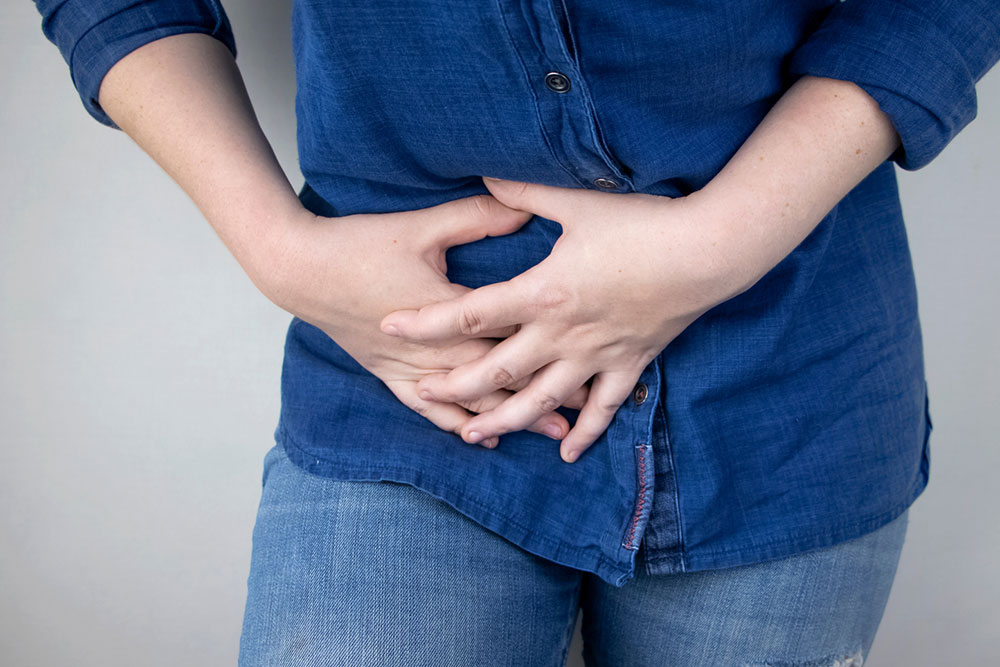
Crohn’s disease – Symptoms, causes, and remedies
Crohn’s disease is an inflammatory bowel disease that is caused due to inflammation in the digestive tract. Although this condition can affect any part of the digestive tract, it usually affects the small intestine and the colon. This chronic inflammatory bowel disease is usually diagnosed in people between the ages of 15 and 30 years. It is important to know the symptoms, causes, and treatment options for managing Crohn’s disease .
Symptoms
The symptoms of Crohn’s disease vary from person to person and may depend on the part of the digestive tract that is affected. These may cause flares followed by periods of remission when there is no indication of symptoms. Here are some common symptoms of Crohn’s disease:
- Recurring diarrhea
One of the common symptoms a person with Crohn’s disease may experience is recurring diarrhea. There may also be the presence of mucus, blood, or pus in the stool.
- Abdominal pain and cramps
The abdominal pain usually occurs in the lower right side of the abdomen and might get worse, especially after eating.
- Reduced appetite
People with Crohn’s disease may experience a loss of appetite, resulting in unintended loss of muscle mass.
- Rectal bleeding
The condition may cause rectal bleeding when the inflammation is in the colon or rectum. This symptom may also be due to anal fissures.
Causes
According to research studies, several factors can be responsible for this inflammatory bowel disease, including:
- Genetics
The risk of developing Crohn’s disease is higher when a person has a parent, child, or sibling with the disease.
- Immune system malfunctioning
When the immune system attacks the healthy bacteria in the digestive tract, it can lead to inflammation, which in turn, may cause Crohn’s disease.
Although the exact cause of Crohn’s disease is unknown, environmental factors like air pollution, certain foods, and excessive stress may also be responsible for aggravating Crohn’s disease.
Treatment options
The treatment for Crohn’s disease is aimed at keeping the inflammation that triggers the symptoms in control and preventing further complications. A combination of therapies is involved in the management of Crohn’s disease.
- Surgery
As there is no cure for Crohn’s disease yet, surgery may be needed in cases where the quality of life is severely affected or there are serious complications of the disease. - Resection
In this procedure, the inflamed area of the intestine is removed and healthy sections are joined back together. Though resection may cause the symptoms to disappear for some years, in certain cases, the disease often recurs in the area of connection.
- Strictureplasty
Crohn’s disease may cause damage to the narrowing of the bowels called a stricture. This narrowing of the bowels can also lead to intestinal blockages. In such cases, strictureplasty is done to widen the narrowed area without removing any part of the intestine.
- Ileostomy
In this procedure, the end of the intestine is rerouted through an opening in the abdomen called a stoma. A removable external collection pouch is attached outside this hole in which waste is collected.
- Colectomy
This surgery is done to remove part or all of the colon when it becomes diseased without affecting the rectum. Moreover, proctocolectomy is done when it is necessary to remove both the colon and rectum.
- Biofeedback
Biofeedback is a technique that provides people with information about their body functions and how to control them. In a biofeedback session, electrical pads that measure body functions such as heart rate, breathing patterns, and more are connected to one’s body, which helps them know about their physiological responses and learn ways to control them. Some of the symptoms of Crohn’s disease can be alleviated by biofeedback therapy, enhancing one’s overall well-being.
Remedies
Here are some remedies that may help manage the symptoms in people with Crohn’s disease:
- Regular exercise
Low-intensity exercise like walking or aerobic exercise can greatly benefit people with this condition. One should aim to include moderate physical activity in their daily routine. - Stress management
Stress can aggravate the symptoms of Crohn’s disease, contributing to flare-ups. When one is stressed, the body releases the hormone cortisol, leading to the worsening of inflammation. Practice mindfulness meditation, which can help reduce stress levels and improve the quality of life. Further, ensuring good sleep is crucial to managing stress. Create a comfortable sleep environment and maintain a consistent sleep schedule. - Fish oil intake
Fish oil has several health benefits due to the presence of omega-3 fatty acids, which are known to have anti-inflammatory properties. Adding fish oil to one’s daily food regime can help reduce inflammation and alleviate some of the symptoms of Crohn’s disease.
Crohn’s disease is a lifelong condition and the flare-ups can impact a person’s daily life. Though research is still going on for its cure, finding the right treatment and making certain lifestyle changes can help one manage the symptoms and avoid complications.




